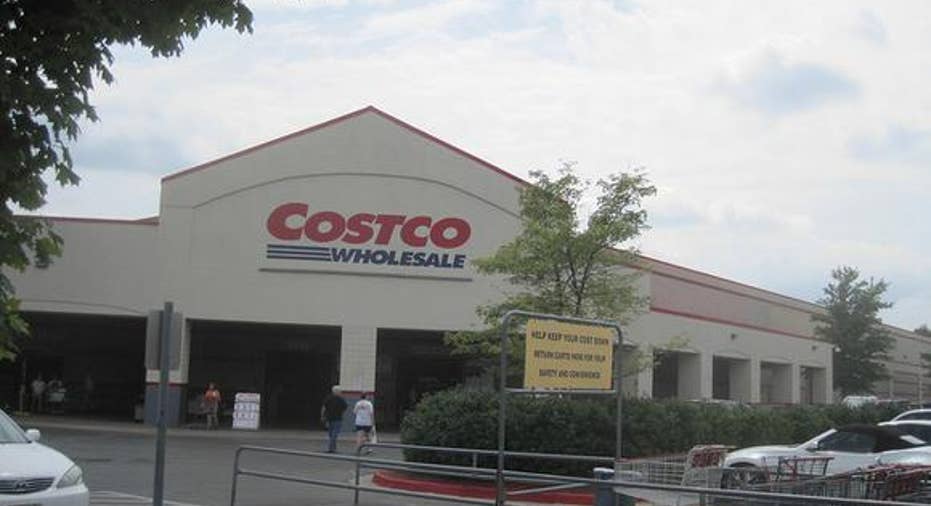5 Things Costco Wholesale Corporation Management Wants You to Know

Costco Wholesale reported somewhat disappointing Q2 sales and earnings results last week. The retail giant's sales growth appears to be slowing and its profit margin also faced some pressure during the quarter.
Costco has reported slowing sales growth in recent months.
On Thursday morning, CFO Richard Galanti spent an hour and a half discussing the company's results with Wall Street analysts. Here are five key points he emphasized.
Deflation hurts sales growth
For most of the past few years, Costco has posted steady 6%-7% comp sales growth, excluding the impacts of foreign currency movements and gas price fluctuations. However, for three months running, Costco's adjusted comp sales growth has been 4% or lower.
Deflation is impacting Costco's revenue, especially for fresh foods.
Some of this slowdown in growth may reflect weaker demand, particularly in several of Costco's international markets. However, deflation is also negatively impacting Costco's revenue in the U.S. The strong dollar has driven down prices for many of the items that Costco sells and the company has been quick to pass those savings along to customers.
As a result, even if customers are buying more items, they are paying less on a per-item basis. This effect likely reduced Costco's revenue by a little less than 1% during the second quarter.
Entry-level wages going up
While many commodity prices are declining, labor costs are going up. Due to its slower growth last quarter, Costco couldn't fully offset its normal wage increases for top-of-scale employees, driving up operating expenses as a percentage of sales.
The operating expense pressure will get worse in the coming quarters. This month, Costco is raising its starting wages in the U.S. and Canada for the first time in nine years to stay ahead of the numerous other retailers that have raised their wages recently. The average $1.50-per-hour increase will have an $0.08 negative impact on earnings per share over the next 12 months.
Credit card shift should help
Costco has finally nailed down a transition plan for its co-branded credit card, which will move from American Express to Citigroup in June. The shift will reduce Costco's card acceptance fees dramatically.
Characteristically, Costco will pass most of its savings through to its members. However, it will keep some of the savings, which should help offset some of its other profitability headwinds. Furthermore, by offering more generous credit card rewards, Costco could drive more customers to sign up for the co-branded card, thereby earning higher referral fees.
Solid e-commerce growth
While Costco remains primarily a brick-and-mortar retailer, it does have a growing e-commerce business. In recent years, the company has partnered with third-party delivery services to offer quick deliveries, in addition to using more traditional shipping methods. It is also expanding its e-commerce efforts to new markets, launching in South Korea and Taiwan within the past year.
These efforts are paying off. The second quarter was a strong one for Costco's e-commerce operations, with sales up about 20% year over year, depending on exactly how you measure.
Picking e-commerce priorities
While Costco is investing in e-commerce growth, it isn't going all out like many of its retail peers. For example, during the earnings call, Galanti ruled out the possibility of offering a "buy online, pick up in store" option anytime soon.
Many other retailers like the "buy online, pick up in store" model because it drives customer traffic to their stores. However, Costco warehouses already have plenty of traffic, with average annual sales of $175 million. Management is worried that customers coming to pick up items could slow down operations.
Costco's approach to e-commerce shows that it wants to embrace this growth opportunity in a sensible way that won't cannibalize its brick-and-mortar business.
The article 5 Things Costco Wholesale Corporation Management Wants You to Know originally appeared on Fool.com.
Adam Levine-Weinberg has no position in any stocks mentioned. The Motley Fool owns shares of and recommends Costco Wholesale. The Motley Fool recommends American Express. Try any of our Foolish newsletter services free for 30 days. We Fools may not all hold the same opinions, but we all believe that considering a diverse range of insights makes us better investors. The Motley Fool has a disclosure policy.
Copyright 1995 - 2016 The Motley Fool, LLC. All rights reserved. The Motley Fool has a disclosure policy.



















